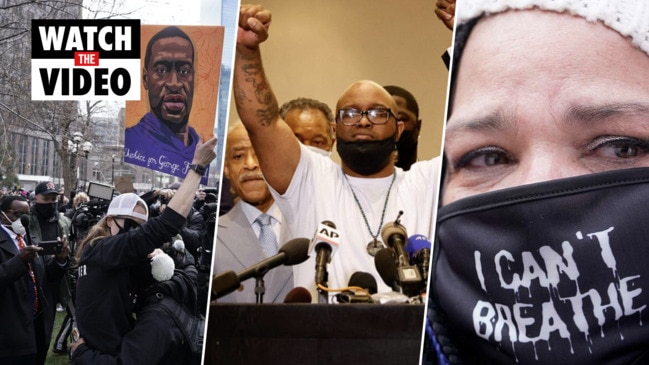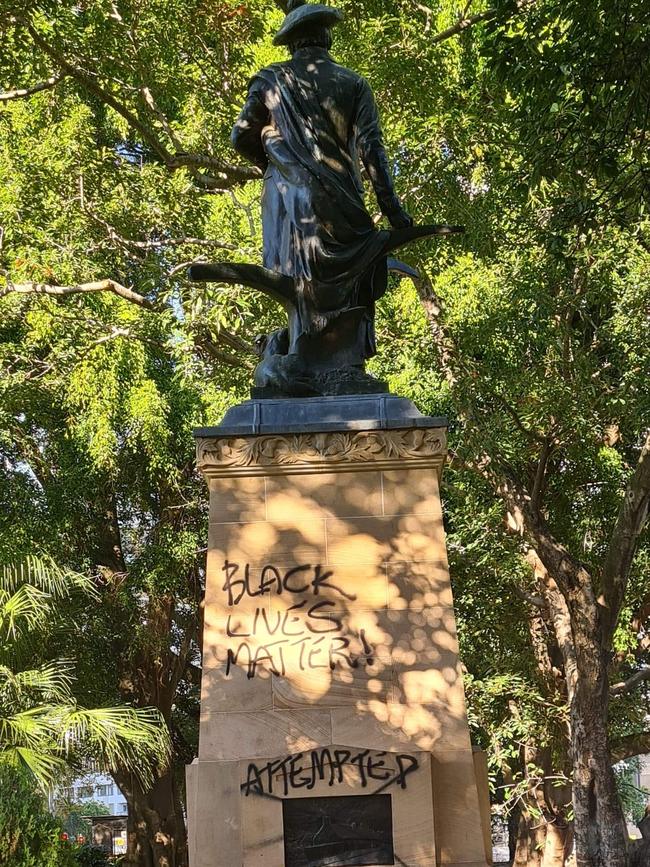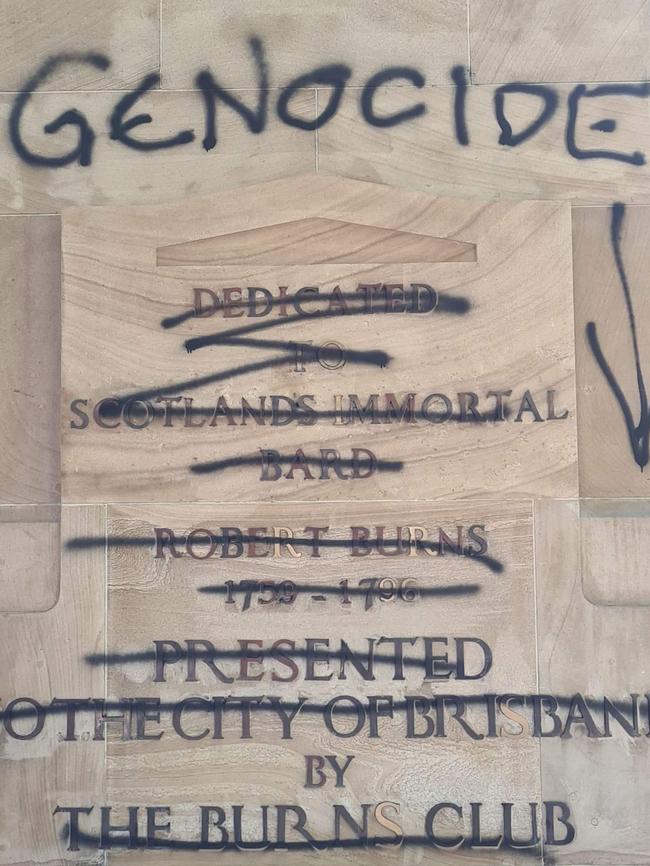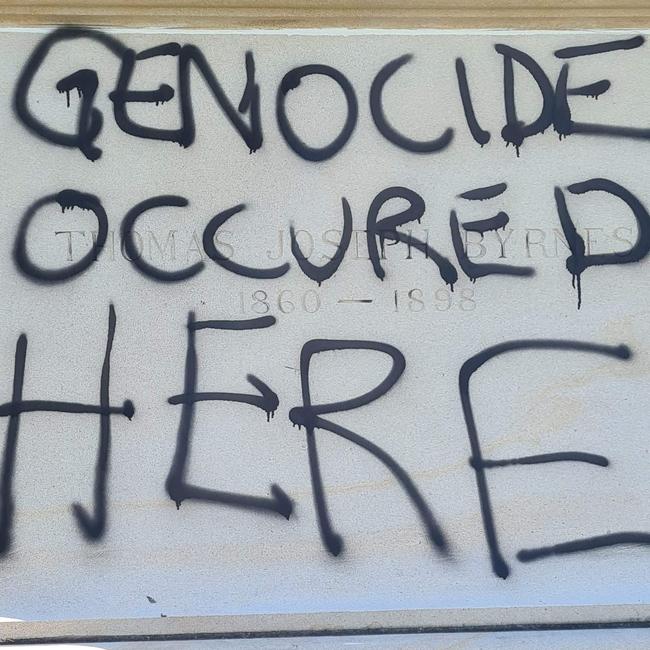Fortitude Valley statues vandalised with Black Lives Matter graffiti
Vandals have defaced statues in Fortitude Valley with Black Lives Matter graffiti on the same day a US policeman was convicted for the murder of George Floyd.

QLD News
Don't miss out on the headlines from QLD News. Followed categories will be added to My News.
Statue in a Brisbane park have been defaced with Black Lives Matter graffiti on the same day a US policeman was convicted for the murder of George Floyd.
The Courier-Mail has been sent images showing graffiti scrawled across the statues, including the words “genocide occurred here”.
One of the statues targeted was that of Scotland’s most famous poet Robert Burns, despite the writer being celebrated as the bard of freedom and liberty.
Burns, whose poetry and songs include Auld Lang Syne, is dubbed the Bard of Scotland, with his statue erected in Centenary Place, Fortitude Valley, in 1929 by the Brisbane Burns Society.


A statue of Queensland’s first Roman Catholic premier Thomas Byrnes was also targeted, with the word’s “genocide occurred here” scrawled across the plinth.
Mr Byrnes was also the first premier to die in office after contracting measles and pneumonia when he was just 37 years old in 1898.
The graffiti appeared on the same morning that a US policeman was convicted for the murder of black man George Floyd, which sparked the Black Lives Matter movement across the globe.
A Queensland Police spokeswoman said the vandalism had not been reported.
Historians have downplayed charges of racism sometimes levelled against Burns for signing up to work as a bookkeeper on a Jamaican sugar plantation that used black slave labour.
Burns, who fathered at least 12 children, accepted the position in 1786 as his life spiralled out of control following the death of his father, the family farm failing and the angry father of his lover pursuing him in the courts, according to a Scottish Government history website.

He was booked and ready to sail to Jamaica however never left Scotland as started to receive fame and acclaim for his published poetry.
In 2009, he was chosen as the greatest Scot in a public vote run by a television channel.
But in the same year, a prominent historian questioned Burns’ suitability to be a national role model, saying he was a “drunk, misogynistic, racist philanderer”.
The Scottish Government hit back saying Burns was an international cultural icon and one of the country’s favourite sons.
“He was both a man of his time and of all time. He wouldn’t have been human without flaws, and his egalitarian ideals have helped cement his universal and timeless appeal,” a government spokesman told the Scotsman newspaper.



